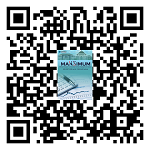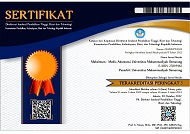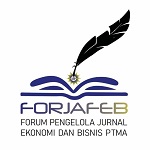The Role of Institutional Ownership in Detecting Fraudulent Financial Reporting: Fraud Heptagon Model Analysis
(1) Universitas Dian Nuswantoro
(2) Universitas Dian Nuswantoro
(3) Universitas Dian Nuswantoro
(4) Universitas Dian Nuswantoro
(*) Corresponding Author
Abstract
This study investigates the impact of seven factors: pressure, opportunity, rationalization, capability, arrogance, ignorance, and greed on Fraudulent Financial Reporting using the Fraud Heptagon model analysis, with Institutional Ownership and the Audit Committee as moderating variables. Focused on state-owned enterprises in Indonesia from 2018 to 2022, purposive sampling yielded 141 samples. Employing regression analysis through Warp PLS software version 8.0, results indicate that opportunity, capability, and ignorance negatively affect fraudulent financial reporting, suggesting potential mitigating roles. Conversely, pressure, rationalization, arrogance, and avarice positively impact Fraudulent Financial Reporting. Notably, institutional ownership moderates the correlation between Greed on fraudulent financial reporting. These findings contribute insight into the dynamics of Fraudulent Financial Reporting activity, emphasizing the need for a comprehensive understanding and strong control mechanisms to effectively prevent Fraudulent Financial Reporting.
Full Text:
PDFReferences
Abbas, A. (2019). Earning Fraud and Financial Stability. Asia Pacific Fraud Journal, 2(1), 117. https://doi.org/10.21532/apfj.001.17.02.01.010
ACFE. (2020). Report to the Nations 2020.
ACFE Global. (2020). Report to the nations on Occupational fraud and abuse: 2020 Global Fraud Study.
Achmad, T., Ghozali, I., & Pamungkas, I. D. (2022). Hexagon fraud: Detection of Fraudulent Financial Reporting in State-owned Enterprises Indonesia. Economies, 10(1). https://doi.org/10.3390/economies10010013
Achmad, T., Hapsari, D. I., & Pamungkas, I. D. (2022). Analysis of Fraud Pentagon Theory to Detecting Fraudulent Financial Reporting using F-Score Model in State-Owned Companies Indonesia. WSEAS Transactions on Business and Economics, 19, 124–133. https://doi.org/10.37394/23207.2022.19.13
Amyulianthy, R., Astuti, T., Wahyudi, A., Harnovinsah, Sopanah, A., & Sulistyan, R. B. (2023). Diamond Fraud Determinants: An Implementation of Indonesia’s Wisdom Value. International Journal of Professional Business Review, 8(8), e02938. https://doi.org/10.26668/businessreview/2023.v8i8.2938
Anisykurlillah, I., Noor Ardiansah, M., & Nurrahmasari, A. (2022). Accounting Analysis Journal Fraudulent Financial Statements Detection Using Fraud Triangle Analysis: Institutional Ownership as A Moderating Variable. Accounting Analysis Journal, 11(2), 138–148. https://doi.org/10.15294/aaj.v11i2.57517
Apriliana, S., & Agustina, L. (2017). The Analysis of Fraudulent Financial Reporting Determinant through Fraud Pentagon Approach. JDA Jurnal Dinamika Akuntansi, 9(2), 154–165. https://doi.org/10.15294/jda.v9i2.4036
Ayem, S., Wardani, D. K., & Mas’adah, L. (2022). Pengaruh Fraud Pentagon terhadap Fraudulent Financial Statement dengan Komite Audit sebagai Variabel Moderasi. Al-Kharaj : Jurnal Ekonomi, Keuangan & Bisnis Syariah, 5(2), 911–930. https://doi.org/10.47467/alkharaj.v5i2.1355
Azizah, S., & Reskino, R. (2023). Pendeteksian Fraudulent Financial Statement: Pengujian Fraud Heptagon Theory. Jurnal Akuntansi Dan Governance, 4(1), 17. https://doi.org/10.24853/jago.4.1.17-37
Bella Saputri, S., & Permata Sari, S. (2023). Fraudulent Financial Reporting Using the Testing of the Hexagon Fraud Theory in Manufacturing on The Indonesian Sharia Stock Index (ISSI). International Journal of Latest Research in Humanities and Social Science (IJLRHSS, 297–306. www.ijlrhss.com
Beneish, M. D. (1999). The Detection of Earnings Manipulation. Financial Analysis Journal, 4.
Bishop, D. Y. (2022). Fraud Risk Management to Detect and Prevent Employee Fraud in Small Rural Businesses. Liberty University.
BUMN Kementrian. (2021). Annual Report BUMN 2021. www.bumn.go.id
Citra Mulyandani, V., & Rahayu, S. (2021). The Role of Fraud Pentagon Theory in Detecting Fraudulent Financial Statements in Banking Companies Listed on the Indonesia Stock Exchange in 2017-2019. American International Journal of Business Management (AIJBM), 4(09).
CNN Indonesia. (2019a). PLN “Dicurigai” Tengah Mengalami Masalah Keuangan. Cnnindonesia. https://www.cnnindonesia.com/ekonomi/20190531171130-85-400115/pln-dicurigai-tengah-mengalami-masalah-keuangan
CNN Indonesia. (2019b, April 30). Kronologi Kisruh Laporan Keuangan Garuda Indonesia. Www.Cnnindonesia.Com. https://www.cnnindonesia.com/ekonomi/20190430174733-92-390927/kronologi-kisruh-laporan-keuangan-garuda-indonesia
Cressey, D. R. (1953). Other people’s money: A study in the social psychology of embezzlement. Patterson Smith.
Fathmaningrum, E. S., & Anggarani, G. (2021). Fraud Pentagon and Fraudulent Financial Reporting: Evidence from Manufacturing Companies in Indonesia and Malaysia. Journal of Accounting and Investment, 22(3), 625–646. https://doi.org/10.18196/jai.v22i3.12538
Ghozali I. (2016). Aplikasi Analisis Multivariate dengan Program IBM SPSS 21 : Update PLS Regresi.
Handoko, B. L. (2021). Fraud Hexagon dalam Mendeteksi Financial Statement Fraud Perusahaan Perbankan di Indonesia. Jurnal Kajian Akuntansi, 5(2), 2579–9975. http://jurnal.ugj.ac.id/index.php/jka
Handoko, B. L., & Natasya. (2019). Fraud diamond model for fraudulent financial statement detection. International Journal of Recent Technology and Engineering, 8(3), 6865–6872. https://doi.org/10.35940/ijrte.C5838.098319
Handoko, B. L., Putri, R. N. A., & Wijaya, S. (2022). Analysis of Fraudulent Financial Reporting based on Fraud Heptagon Model in Transportation and Logistic Industry listed on IDX during Covid-19 Pandemic. ACM International Conference Proceeding Series, 56–63. https://doi.org/10.1145/3578997.3579003
Horwath, C. (2011). Putting the Freud in Fraud: Why the Fraud Triangle Is No Longer Enough,. Horwath, Crowe.
Indriyani, E., & Suryandari, D. (2021). Detection of Fraudulent Financial Statement through Pentagon Theory with Audit Committee as Moderating. EAJ (Economic and Accounting Journal, 4(1). http://openjournal.unpam.ac.id/index.php/EAJ
Khamainy, A. H., Ali, M., & Setiawan, M. A. (2022). Detecting financial statement fraud through new fraud diamond model: the case of Indonesia. Journal of Financial Crime, 29(3), 925–941. https://doi.org/10.1108/JFC-06-2021-0118
Kontan. (2023, September 3). Nilai Emisi IPO Tembus Rp 62,61 Triliun di 2021, Melonjak 11 Kali Lipat. Kontan.Com. https://investasi.kontan.co.id/news/nilai-emisi-ipo-tembus-rp-6261-triliun-di-2021-melonjak-11-kali-lipat
Ling, D. C., Wang, C., & Zhou, T. (2020). Institutional common ownership and firm value: Evidence from real estate investment trusts. Real Estate Economics, 49(1), 187–223. https://doi.org/10.1111/1540-6229.12312
Lou, Y.-I. (2009). Fraud Risk Factor of the Fraud Triangle Assessing the Likelihood of Fraudulent Financial Reporting. Journal of Business & Economics Research, 7(2).
Medlar, I., & Umar, H. (2023). Enrichment: Journal of Management Fraud diamond analysis of financial statement fraud. Enrichment: Journal of Management, 13(3).
Mohamed, K., & Yusof B. (2016). Fraudulent Financial Reporting: An Application of Fraud Models to Malaysian Public Listed Companies. University of Hull.
Navila Rahma, N., & Permata Sari, S. (2023). Detection of Fraud Financial Statements through the Hexagon Model Vousinas Fraud Dimensions: Review on Jakarta Islamic Index 70. International Journal of Latest Research in Humanities and Social Science. www.ijlrhss.com
Nugroho, D., & Diyanty, V. (2022). Hexagon Fraud in Fraudulent Financial Statement: The Moderating Role of Audit Committee. Jurnal Akuntansi Dan Keuangan Indonesia, 19(1), 46–67. https://doi.org/10.21002/jaki.2022.03
Owusu, G. M. Y., Koomson, T. A. A., Alipoe, S. A., & Kani, Y. A. (2022). Examining the predictors of fraud in state-owned enterprises: an application of the fraud triangle theory. Journal of Money Laundering Control, 25(2), 427–444. https://doi.org/10.1108/JMLC-05-2021-0053
Permata Sari, S., & Khoiriah, ati. (2021). Hexagon Fraud Detection of Regional Government Financial Statement as A Fraud Prevention on The Pandemic Crisis Era. 24(2).
Prihanto, H. (2021). Factor Affecting the Prevention of Corruption Using Fraud. Moestopo International Review on Societies, Humanities, and Sciences. http://mirshus.moestopo.ac.id/index.php/mirshus
Puteri, N. N. (2023). Fraudulent Financial Statements Analysis Using Hexagon Fraud Approach with Audit Committee as Moderating Variable. International Journal of Business and Management Invention (IJBMI) ISSN, 12, 35–48. https://doi.org/10.35629/8028-12013548
Rahman, A., Negeri, P., Jl, M., & Almamater, N. (2020). Detection of Financial Statement Fruad Triangle in LQ45 Companies Listed in Indonesia Stock Exchange. International Journal of Technical Vocational and Engineering Technology, 2(1), 2710–7094.
Ratnasari Estu, & Solikhah adingatus. (2019). Analysis of Fraudulent Financial Statement: the Fraud Pentagon Theory Approach. Gorontalo Accounting Journal , 2(2), 2614–2066.
Sahla, W. A., & Ardianto, A. (2023). Ethical values and auditors fraud tendency perception: testing of fraud pentagon theory. Journal of Financial Crime, 30(4), 966–982. https://doi.org/10.1108/JFC-04-2022-0086
Sánchez-Aguayo, M., Urquiza-Aguiar, L., & Estrada-Jiménez, J. (2022). Fraud detection using the fraud triangle theory and data mining techniques: A literature review. Computers, 10(10). https://doi.org/10.3390/computers10100121
Sari, N. S., Sofyan, A., & Fastaqlaili, N. (2019). Analysis of Fraud Diamond Dimension in Detecting Financial Statement Fraud. Jurnal Akuntansi Trisakti, 5(2), 171–182. https://doi.org/10.25105/jat.v5i2.4861
Suryani, A. W., & Rofida, E. (2020). Environmental Accounting from the New Institutional Sociology Theory Lens: Branding or Responsibility? Jurnal Dinamika Akuntansi Dan Bisnis, 7(2). https://doi.org/10.24815/jdab.v7i2.17126
Uciati, N., & Mukhibad, H. (2019). Accounting Analysis Journal Fraudulent Financial Statements at Sharia Banks. Accounting Analysis Journal, 8(3), 198–206. https://doi.org/10.15294/aaj.v8i3.33625
Wibowo, D., & Putra, Y. (2023). Factors that Influence Financial Statement Fraud with Fraud Pentagon Analysis. Asia Pacific Fraud Journal, 8(1), 65. https://doi.org/10.21532/apfjournal.v8i1.271
Wolfe, D. T., & Hermanson, D. R. (2004). The Fraud Diamond: Considering the Four Elements of Fraud. https://digitalcommons.kennesaw.edu/facpubs
Article Metrics
Abstract view : 923 timesPDF - 10 times
DOI: https://doi.org/10.26714/mki.14.1.2024.37-47
Refbacks
- There are currently no refbacks.
-----------------------------------------------------------------------------------------------------------------------------------------------------------------------------------
 | MAKSIMUM: Media Akuntansi Universitas Muhammadiyah Semarang |
![]()
Maksimum: Media Akuntansi Universitas Muhammadiyah Semarang is licensed under a Creative Commons Attribution Attribution-NonCommercial-NoDerivatives 4.0 International License.

















